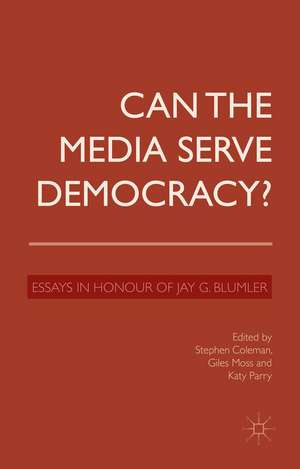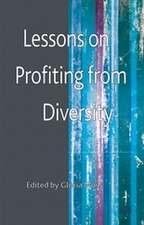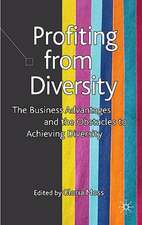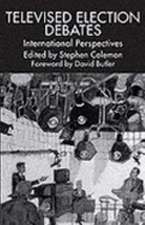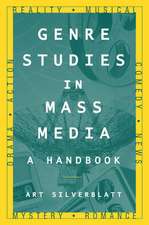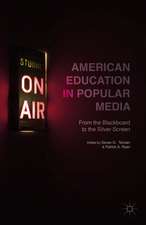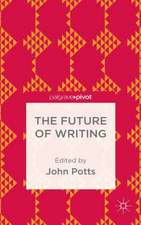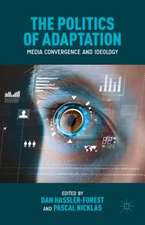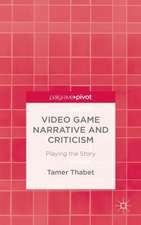Can the Media Serve Democracy?: Essays in Honour of Jay G. Blumler
Editat de S. Coleman, G. Moss, K. Parryen Limba Engleză Hardback – 2 ian 2015
| Toate formatele și edițiile | Preț | Express |
|---|---|---|
| Paperback (1) | 383.71 lei 6-8 săpt. | |
| Palgrave Macmillan UK – 2015 | 383.71 lei 6-8 săpt. | |
| Hardback (1) | 390.63 lei 6-8 săpt. | |
| Palgrave Macmillan UK – 2 ian 2015 | 390.63 lei 6-8 săpt. |
Preț: 390.63 lei
Nou
Puncte Express: 586
Preț estimativ în valută:
74.75€ • 81.45$ • 62.99£
74.75€ • 81.45$ • 62.99£
Carte tipărită la comandă
Livrare economică 23 aprilie-07 mai
Preluare comenzi: 021 569.72.76
Specificații
ISBN-13: 9781137467911
ISBN-10: 1137467916
Pagini: 251
Ilustrații: XIII, 251 p.
Dimensiuni: 140 x 216 x 23 mm
Greutate: 0.48 kg
Ediția:2015
Editura: Palgrave Macmillan UK
Colecția Palgrave Macmillan
Locul publicării:London, United Kingdom
ISBN-10: 1137467916
Pagini: 251
Ilustrații: XIII, 251 p.
Dimensiuni: 140 x 216 x 23 mm
Greutate: 0.48 kg
Ediția:2015
Editura: Palgrave Macmillan UK
Colecția Palgrave Macmillan
Locul publicării:London, United Kingdom
Cuprins
List of Tables Acknowledgements Notes on the Contributors 1. Introduction: Can the Media Serve Democracy? PART I: MEDIA SYSTEMS AND COMPARATIVE RESEARCH 2. The Idea of 'Systems' in Media Studies: Criticisms, Risks, Advantages; Paolo Mancini 3. The Fine Art of Comparing Media Systems: Opportunities, Pitfalls and Challenges; Kees Brants 4. Comparative Political Communication Research: The Undiminished Relevance of the Beginnings; Frank Esser 5. Mediatization of the Modern Publicity Process; Winfried Schulz PART II: JOURNALISM, DEMOCRACY AND THE PUBLIC INTEREST 6. Public Service Broadcasting: Markets and 'Vulnerable Values' in Broadcast and Print Journalism; Stephen Cushion and Bob Franklin 7. Political Communication Research in the Public Interest; Denis McQuail 8. Journalists, Journalism, and Research: What Do We Know and Why Should We Care?; David H. Weaver 9. Democratic Political Communication Systems and the Transformative Power of Scandals: Phone Hacking at the News of the World asa Critical Juncture in the Regulation of the British Press; James Stanyer 10. Morals and Methods: A Note on the Value of Survey Research; David E. Morrison PART III: PUBLIC CULTURE AND MEDIATED PUBLICS 11. The Dream Machine?: Television as Public Culture; John Corner 12. Audiences and Publics: Reflections on the Growing Importance of Mediated Participation; Sonia Livingstone 13. On Seeing Both Sides: Notes on the 2012 Presidential Debates; Elihu Katz and Menahem Blondheim PART IV: CHANGING MEDIA, NEW DEMOCRATIC OPPORTUNITIES 14. Media Systems and Social Change: Challenges for Theory and Research; W. Lance Bennett 15. The Internet's Gift to Democratic Governance: The Fifth Estate; William Dutton 16. Towards an Inclusive Digital Public Sphere; Gianpietro Mazzoleni 17. Beyond the Po-Faced Public Sphere; Stephen Coleman PART V: THE PAST, PRESENT AND FUTURE OF POLITICAL COMMUNICATION 18. Jay Blumler: A Founding Father of Media Research; James Curran 19. Values are Always at Stake': An Interview with Jay G. Blumler; Katy Parry and Giles Moss Notes References
Notă biografică
W. Lance Bennett, University of Washington, Seattle, USA Menahem Blondheim, Hebrew University of Jerusalem, Israel Jay G. Blumler, University of Leeds, UK Kees Brants, Leiden University, Netherlands Stephen Coleman, University of Leeds, UK John Corner, University of Liverpool, UK James Curran, Goldsmiths, University of London, UK William H. Dutton, Michigan State University, USA Frank Esser, University of Zurich, Switzerland Bob Franklin, Cardiff University, UK Elihu Katz, University of Pennsylvania, USA Sonia Livingstone, London School of Economics, UK Paolo Mancini, Università di Perugia, Italy Gianpietro Mazzoleni, University of Milan, Italy Denis McQuail, University of Amsterdam, Netherlands David Morrison, University of Leeds, UK Giles Moss, University of Leeds, UK Katy Parry, University of Leeds, UK Winfried Schulz, University of Erlangen-Nuremberg, Germany James Stanyer, Loughborough University, UK David H. Weaver Indiana University, USA
